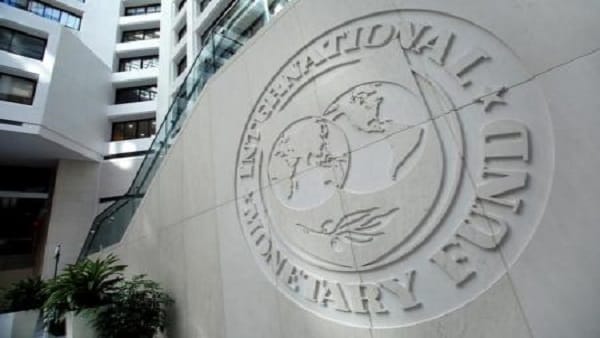
– –
Some Zambians are demanding that government discloses the conditions attached to a 1.4 billion United States Dollars’ IMF economic recovery deal, signed in December, last year, under the extended credit facility for 2022 to 2025.
This follows a refusal to do so, by IMF Mission of chief to Zambia, Allison Holland, who said it was not her organisation’s policy to disclose such, ahead of a board discussion, in a letter, responding to a former Minister in the previous government, Bowman Lusambo’s written demand for full disclosure of the deal, before being signed by the board, which is supposed to convene to approve the agreement, this year.
Why some citizens want to know
Lusambo and those supporting his stance, say it is in the interest of transparency and fear the IMF may impose unfavourable conditions on citizens, reminiscent of the 1990s, Structural Adjustment Programme, which resulted into wage freezes for all public servants and the indiscriminate privatisation of national assets, as well as retrenchments, among others, which caused untold sufferings for many citizens.
“The response from the IMF, falls short of an attempt to conceal what ordinarily ought to be public information. In many instances, the Fund glorifies itself as having reformed. We know that the Fund previously used to publish what was called letters of intent. These were public disclosure documents that Finance Ministers of nations entering into economic programmes with the Fund were made to sign before any loans were approved and these were published on the IMF website. Now the fund today swims in secrecy on one hand while demanding [that] China makes public, its loan agreements with countries such as Zambia, on the other hand. This is hypocrisy of the highest order,” claims Lusambo.
Reading between the lines
Social and political commentators, such as Engineer, Ngobola Muyembe feel it is only fair for citizens to at least get to see what the government has agreed with the IMF, on their behalf, as has happened before, in other countries, such as Pakistan and Ukraine.
– –
Muyembe observes: “When the IMF wants to help, they outline their intentions openly, without demanding that the country loses out. When Ukraine got its 5 billion dollars of the Staff Level Agreement, in October [2021], the IMF [in exchange], demanded that the [Ukraine] government reduces the role of the state and vested interests in the economy, to improve the business environment, strengthen corporate governance, attract investment and raise the economy’s potential. Legislation sought by the IMF, included, governance at the central bank and the independence of the anti-graft agency. These are not bad things to ask of any government and they work in favour of the society.
When Pakistan got its 6 billion dollars of the same agreement, IMF demanded that the government make changes to [the] National Electric Power Regulatory Authority (NEPRA) Act amendments and National Social Economic Registry (NSER). Here, you can see that the IMF demanded that the government of Pakistan [needed] to free up their control of the energy sector, so that private companies, that are largely western, could get involved to cash in on the market.
For Zambia, they just wrote in an email that the agreement was based on the authorities’ plans to undertake bold and ambitious economic reforms. What does that even mean?”
– –
Self-exiled Zambian politician, Azwell Banda, equally interrogates the said economic reforms:
“What are these bold and ambitious economic reforms? We know some of them. Withdraw subsidies from fuel and electricity, generally, remove government interference from the operations of the markets in Zambia and free up fiscal space, to meet debt obligations at whatever cost to the Zambian people! The neo-colonial native is not fully humane, you see,” Banda, alleges.
Citizens continue second-guessing
It is evident that the ‘secrecy’ around the deal, has left it open to second-guessing and given rise to heightened suspicion and fear of tough times ahead for Zambians, given the IMF’s reputation of imposing harsh conditions, which have in the past made the lending institution, unpopular among many citizens, such as Kasonde Mwenda, the president of the opposition Economic Freedom Fighters (EFF) party.
“They [IMF] come to milk you and eat your cow. By the time the IMF leaves Zambia, [President] Hakainde Hichilema will be regretting that he [ever] invited them. Those are not people to fraternise or even waste time with. When the IMF gives you an IMF loan, they will dictate which contractors you bring on your roads, in a way, you will pay handsomely! Even where you buy your medicine, they will now be bringing their own medicine. So, that’s why they can not show the conditionalities, they will own you. So, IMF is the worst deal we can ever have!
We voted for Hakainde Hichilema to be president and president he should be, he should not relegate his responsibility and his power to IMF. That’s a rogue system, it’s meant to reap us off and leave us in tatters,” Kasonde alleges.
In January, 2022, shortly after the IMF deal was announced, the Zambian government removed energy subsidies, which led to the increase in energy prices, a development said to be one of the conditions in question.
Zambians unhappy with removal of fuel, electricity subsidies
Source: Africafeeds.com
